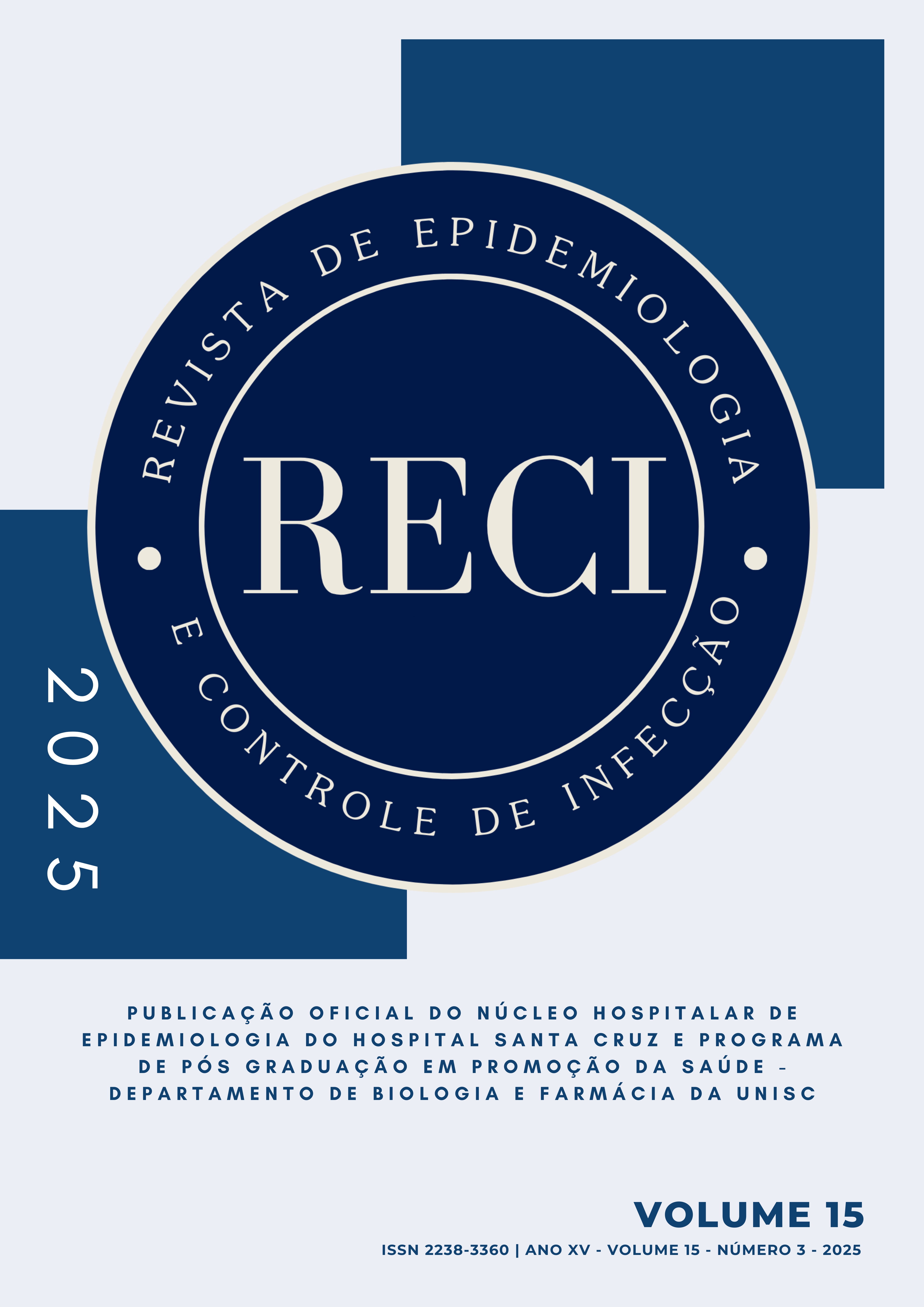The culture of communication in the antimicrobial program in Brazilian pediatric intensive care.
DOI:
https://doi.org/10.17058/reci.v15i3.19466Keywords:
Antimicrobial Stewardship. Intensive Care Units Pediatric. Antibiotic Resistance. Feedback. Efficacy. Surveys and Questionnaires.Abstract
Background and Objectives: Antimicrobial Stewardship Programs (ASPs) are essential for optimizing the use of antimicrobials and combating bacterial resistance. This study evaluated the effectiveness of ASPs in Brazilian pediatric intensive care units (PICUs). Methods: This multicenter study, conducted in 219 Brazilian hospitals, used a validated form to collect information on antimicrobial use shared with healthcare professionals. The characteristics of the services were analyzed according to their location, level of adherence to ASP actions, and the feedback activities offered to PICU staff. Results: The overall implementation level of ASPs in hospitals was considered intermediate, with an average score of 72.46 (±37.60). PICU behavior varied significantly among states. Some states had more survey responses, some had higher hospital adherence, and some excelled in disseminating ASP results. Some institutions were found to have stronger feedback strategies, with most adopting organized institutional actions and approximately half offering personalized actions for prescribers and other professionals. However, several opportunities for improvement were identified.Conclusion: The observed imbalance among the analyzed scenarios reveals the urgent need to strengthen the culture of disseminating results, improve the methods used, and increase adherence to ASPs in Brazilian PICUs.
Downloads
References
1. Antimicrobial Resistance Collaborators. Global burden of bacterial antimicrobial resistance in 2019: a systematic analysis. Lancet. 2022;399(10325):629-655. Erratum in: Lancet. 2022;400(10358):1102 https://doi.org/10.1016/s0140-6736(21)02724-0
2. World Health Organization. Antimicrobial resistance. [Internet]. 2024. Available from: https://www.who.int/news-room/fact-sheets/detail/antimicrobial-resistance
3. ANVISA. Plano de Ação da Vigilância Sanitária em Resistência aos Antimicrobianos. 2017. ANVISA website. [Internet]. 2024. Available from: https://www.gov.br/anvisa/pt-br/assuntos/noticias-anvisa/2017/acesse-plano-de-acao-para-controle-da-resistencia-microbiana
4. ANVISA. Diretriz Nacional para Elaboração de Programa de Gerenciamento do Uso de Antimicrobianos em Serviços de Saúde. Revisão 2023. ANVISA website. [Internet]. 2024. Available from: https://www.gov.br/anvisa/pt-br/centraisdeconteudo/publicacoes/servicosdesaude/publicacoes/DiretrizGerenciamentoAntimicrobianosANVISA2023FINAL.pdf
5. ANVISA. Projeto Stewardship Brasil. Avaliação Nacional dos Programas de Gerenciamento do Uso de Antimicrobianos em Unidade de Terapia Intensiva Adulto dos Hospitais Brasileiros. 2019. ANVISA website. [Internet]. 2024. Available from: https://antigo.anvisa.gov.br/documents/33852/271855/Projeto+Stewardship+Brasil/435012dc-4709-4796-ba78-a0235895d901?version=1.0
6. McMullan B, Bryant PA, Duffy E, et al. Multinational consensus antimicrobial stewardship recommendations for children managed in hospital settings. Lancet Infect Dis. 2023;23(6):e199-e207. https://doi.org/10.1016/s1473-3099(22)00726-5
7. Yock-Corrales A, Naranjo-Zuñiga G. Regional Perspective of Antimicrobial Stewardship Programs in Latin American Pediatric Emergency Departments. Antibiotics (Basel). 2023; 16;12(5):916. https://doi.org/10.3390/antibiotics12050916
8. Fabre V, Secaira C, Cosgrove SE, et al. Deep Dive Into Gaps and Barriers to Implementation of Antimicrobial Stewardship Programs in Hospitals in Latin America. Clin Infect Dis. 2023; 5;77(Suppl 1):S53-S61. https://doi.org/10.1093/cid/ciad184
9. Menezes RM, Carneiro M, Gonçalves MRS, et al. Desenvolvimento e validação de questionário para autoavaliação dos programas de gerenciamento de antimicrobianos em unidade de terapia intensiva adulto. Revista Científica Multidisciplinar Núcleo do Conhecimento 2022; 05:175-215. ISSN: 2448-0959, website. [Internet]. 2024. Available from: https://www.nucleodoconhecimento.com.br/saude/questionario-para-autoavaliacao
Downloads
Published
Issue
Section
License
Copyright (c) 2025 Eliane Carlosso Krummenauer, Mariana Portela de Assis, Mara Rubia Santos Gonçalves, Magda Machado de Miranda Costa , Rochele Mosmann Menezes , Jane Dagmar Pollo Renner, Marcelo Carneiro

This work is licensed under a Creative Commons Attribution 4.0 International License.
The author must state that the paper is original (has not been published previously), not infringing any copyright or other ownership right involving third parties. Once the paper is submitted, the Journal reserves the right to make normative changes, such as spelling and grammar, in order to maintain the language standard, but respecting the author’s style. The published papers become ownership of RECI, considering that all the opinions expressed by the authors are their responsibility. Because we are an open access journal, we allow free use of articles in educational and scientific applications provided the source is cited under the Creative Commons CC-BY license.


